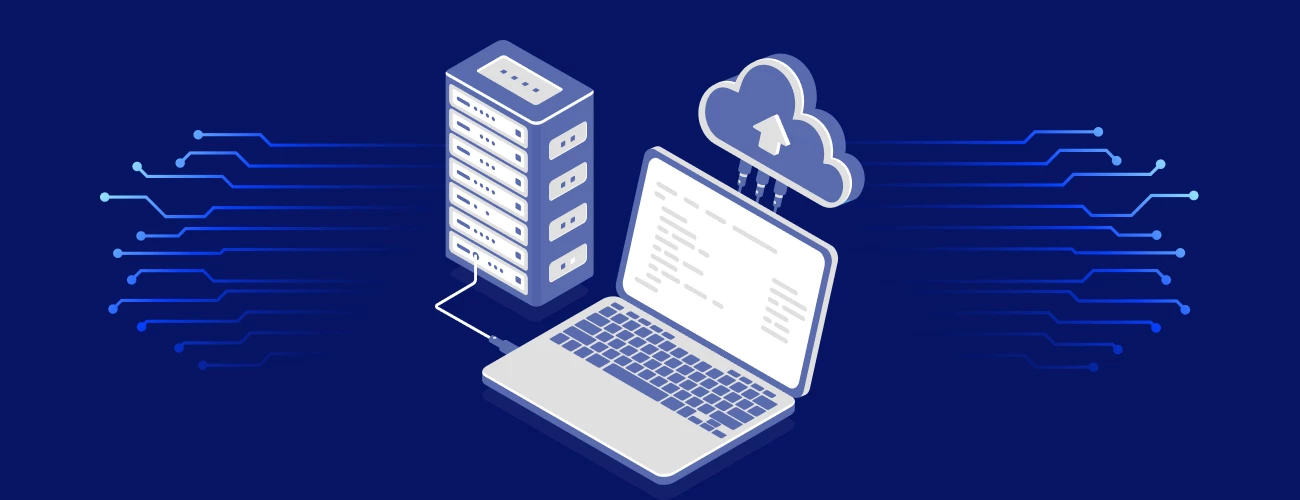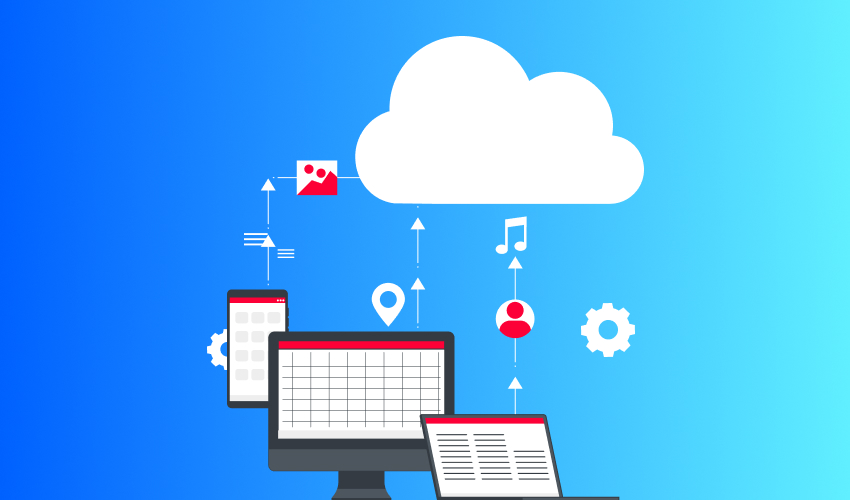What is cloud technology: definition and application

Cloud technologies make it possible to store files not on the user's device, but on a remote, well-protected computer. For a company, this is important, since it is possible not to buy expensive servers, pay for regular updates and technical support. In addition, if you have a password and login, access is possible from anywhere in the world where there is internet, which allows employees from different countries to work on projects together.
What are cloud technologies?
In simple terms, the cloud is a technology that allows files to be stored on a remote server provided by a provider to its customers. The server is a heavy-duty computer that can hold a huge number of files. Once the contract is signed, the user is allocated a separate space that is protected from hacking.
Thus, it is convenient to store in the cloud:
- files and documents - texts, tables, presentations, PDF;
- photos, videos, music, movies;
- backup copies of data from computers, phones and servers, which help to restore information in case of device failure;
- applications for remote work that do not require downloading to users' devices;
- databases;
- projects and developments.
Notably, the purpose of cloud technology is not only to store data. The user can also work with them - correct them, delete them, send them to others. Any changes are saved automatically, in some cases they can be canceled.
Features and advantages of cloud technologies
Cloud-technologies provide a number of advantages that make them popular not only with ordinary users, but also in business.
Remote Access
The advantages of remote access are obvious:
- no need to store a large amount of data on your device, which is good for its performance;
- no need to carry physical gadgets with recorded information;
- you can work from anywhere - home, office, in another city. This is especially important for people who work remotely or travel a lot;
- files are stored in secure data centers (places where servers are located), which reduces the risk of losing them due to theft or device breakdown;
- cloud resources can be flexibly increased or decreased, depending on the user's needs. For example, file storage can be quickly expanded for an additional fee;
- cloud allows multiple users to work on the same files/projects simultaneously.
Thus, cloud technology through remote file access makes it easier to work with data, which increases the overall productivity of users.
Automatic updates
Cloud platforms automatically update security programs, which removes the onus from users to install new versions. This means they are always working with the latest software versions, which reduces the risks associated with outdated software.
Pay-as-you-go model - pay while you use it
Cloud technologies are convenient in that users pay only for the resources they use, or in some cases use them for free. For example, when uploading photos and files to Google Drive, if the amount of information does not exceed 15 GB.
This option is especially convenient for companies whose work is associated with seasonal demand, when it is necessary to temporarily increase capacity. This allows you to better control costs and competently manage the budget.
Data protection
Providers usually provide high security with the following technologies:
- file encryption - data is encrypted both at the transmission and storage stage;
- two-factor authentication - users must pass two levels of verification, for example, in addition to the password to enter the code that came by SMS to the phone;
- regular backup - in case of sudden hardware or software failure.
Servers are located in data centers, where security is provided at the highest level. Access to the premises is strictly controlled with the use of access passwords, video surveillance systems. In case of power failure, data centers are equipped with uninterruptible power supplies and backup generators.
Saving resources
Cloud technologies allow you to significantly save your budget, as there is no need to maintain physical infrastructure - servers, data storage systems, etc. Accordingly, IT staff costs are also reduced, as many functions (updates, security) are taken over by the provider.

Types of cloud technologies
There are such types of cloud technologies:
- public cloud (Google Drive, iCloud) - suitable for both ordinary users and companies. Here it is convenient to store files, work with documents, run applications. You can buy paid packages that do not require significant investment. Of the minuses - the public cloud has a limited amount of data storage, you can not perform operations that are not provided by the program;
- private cloud - created specifically for one organization, so you can not send data to an external program, which guarantees increased security. Private cloud is suitable for large companies that need flexible and adaptive infrastructure. The minus is the high price and support costs;
- Hybrid cloud - sensitive documents can be stored in the private cloud, while the rest can be stored in the public cloud. Thus, the firm can optimize money spending, providing high security;
- multi-cloud - involves the use of several cloud storage solutions from different service providers. This option is suitable for companies that want to reduce dependence on a single provider, providing increased reliability in case there is a failure in its system. In addition, multi-cloud allows you to utilize each provider's unique products that your competitors don't have.
The choice of cloud depends on the needs of the user or company. Public options provide simplicity and accessibility, private options provide security and control, while multi-cloud, hybrid cloud help to find a balance between efficiency and flexibility. Before favoring one or the other option, it is worth evaluating what resources and features are important for specific tasks.
Where cloud technology is used
We use the cloud almost every day when we check email or upload photos to Google Drive. Businesses can't do without cloud technology to accomplish a variety of tasks, including:
- Create a corporate portal - a great option if you plan to automate your business or have a lot of remote employees on staff. Turnkey website development helps to fully customize the internal work of the company in the cloud - to create business chats, conference rooms, sections for different departments and other important elements;
- work with CRM-system - in the cloud stored information about customers, goods, documents. Managers use it to send email newsletters, process leads;
- customize accounting - in the cloud you can keep financial statements, generate tax returns, manage payments. The ability to access accounting at any time simplifies control over finances;
- create a database to work with all electronic documents of the company, ensuring security and accessibility at any time.
Cloud platforms like Zoom, Microsoft Teams or Google Meet can be used for online meetings, file sharing, project collaboration, regardless of location.
Cloud-technologies are also ideal for working with Big Data, as they allow you to quickly process huge amounts of data. This helps to identify trends, predict customer behavior, optimize business processes, and make informed decisions.
Cloud technologies for business development
IT-company MEGASITE knows everything about the role of cloud technologies in business development, so we offer advanced solutions that will provide your business with flexibility, security and scalability.
You will be able to automate processes, work with information online, and quickly adapt to changes. Effective data management will ensure that all operations are secure. To learn more about the service and to order website creation, contact your MEGASITE manager and he will answer all your questions.
Your project
Call/write:


